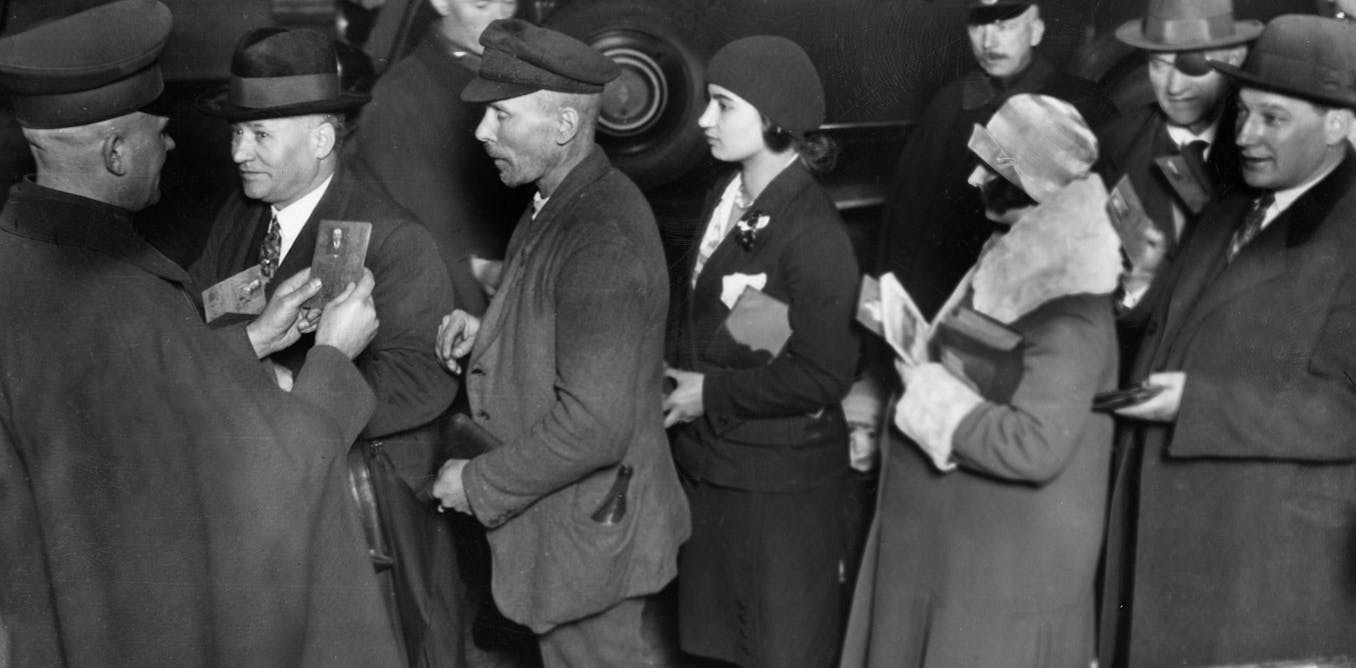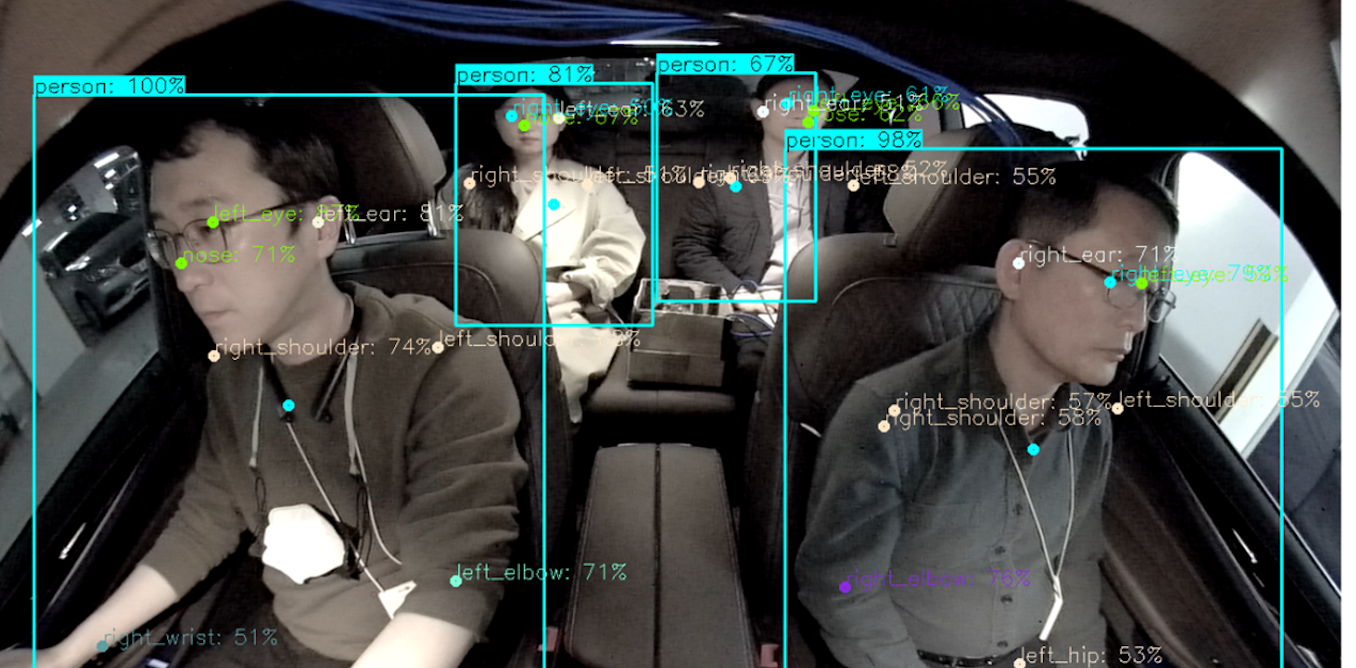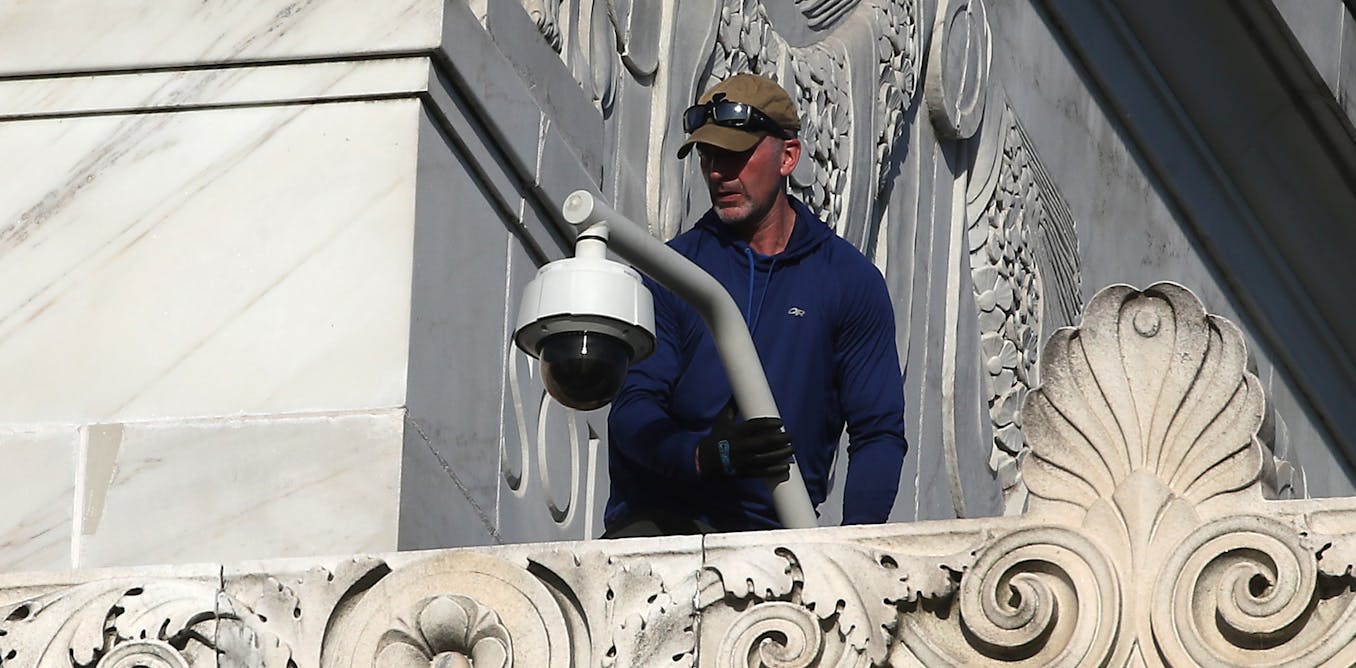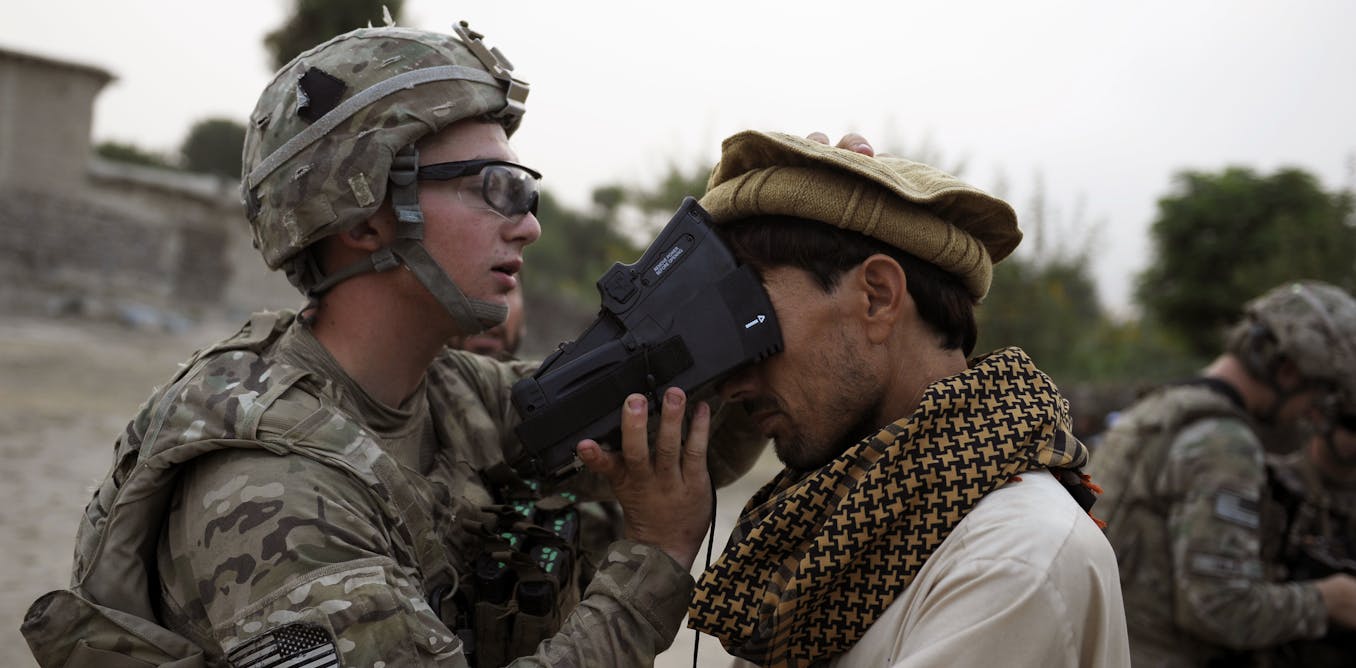Face recognition technology follows a long analog history of surveillance and control based on identifying physical features
Face recognition technology follows earlier biometric surveillance techniques, including fingerprints, passport photos and iris scans. It’s the first that can be done without the subject’s knowledge.
Jan. 19, 2024 • ~8 min






